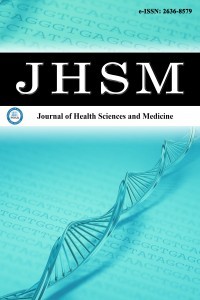1.
Berkovich RR. Acute multiple sclerosis relapse. Continuum (Minneap Minn). 2016;22(3):799-814. doi:10.1212/CON.0000000000000330
2.
Lublin FD, Reingold SC, Cohen JA, et al. Defining the clinical course of multiple sclerosis: the 2013 revisions. Neurology. 2014;83(3):278-286. doi:10.1212/WNL.0000000000000560
3.
Lublin FD, Baier M, Cutter G. Effect of relapses on development of residual deficit in multiple sclerosis. Neurology. 2003;61(11):1528-1532. doi:10.1212/01.wnl.0000096175.39831.21
4.
Frohman EM, Shah A, Eggenberger E, Metz L, Zivadinov R, Stüve O. Corticosteroids for multiple sclerosis: I. Application for treating exacerbations. Neurotherapeutics. 2007;4(4):618-626. doi:10.1016/j.nurt. 2007.07.008
5.
Repovic P, Lublin FD. Treatment of multiple sclerosis exacerbations. Neurol Clin. 2011;29(2):389-400. doi:10.1016/j.ncl.2010.12.012
6.
Repovic P. Management of Multiple Sclerosis Relapses. Continuum (Minneap Minn). 2019;25(3):655-669. doi:10.1212/CON.0000000000000 739
7.
Hirst CL, Ingram G, Pickersgill TP, Robertson NP. Temporal evolution of remission following multiple sclerosis relapse and predictors of outcome. Mult Scler. 2012;18(8):1152-1158. doi:10.1177/1352458511433919
8.
Miller DM, Weinstock-Guttman B, Béthoux F, et al. A meta-analysis of methylprednisolone in recovery from multiple sclerosis exacerbations. Mult Scler. 2000;6(4):267-273. doi:10.1177/135245850000600408
9.
Filippini G, Brusaferri F, Sibley WA, et al. Corticosteroids or ACTH for acute exacerbations in multiple sclerosis. Cochrane Database Syst Rev. 2000;2000(4):CD001331. doi:10.1002/14651858.CD001331
10.
Tremlett HL, Luscombe DK, Wiles CM. Use of corticosteroids in multiple sclerosis by consultant neurologists in the United Kingdom. J Neurol Neurosurg Psychiatry. 1998;65(3):362-365. doi:10.1136/jnnp.65.3. 362
11.
Burton JM, O’Connor PW, Hohol M, Beyene J. Oral versus intravenous steroids for treatment of relapses in multiple sclerosis. Cochrane Database Syst Rev. 2012;12:CD006921. doi:10.1002/14651858.CD006921.pub3
12.
Nickerson M, Marrie RA. The multiple sclerosis relapse experience: patient-reported outcomes from the North American Research Committee on Multiple Sclerosis (NARCOMS) registry. BMC Neurol. 2013;13:119. doi:10.1186/1471-2377-13-119
13.
Nos C, Sastre-Garriga J, Borràs C, Río J, Tintoré M, Montalban X. Clinical impact of intravenous methylprednisolone in attacks of multiple sclerosis. Mult Scler. 2004;10(4):413-416. doi:10.1191/1352458504ms1068oa
14.
Iuliano G, Napoletano R, Esposito A. Multiple sclerosis: relapses and timing of remissions. Eur Neurol. 2008;59(1-2):44-48. doi:10.1159/000109 260
15.
Hirst C, Ingram G, Pearson O, Pickersgill T, Scolding N, Robertson N. Contribution of relapses to disability in multiple sclerosis. J Neurol. 2008;255(2):280-287. doi:10.1007/s00415-008-0743-8
16.
Kalincik T, Buzzard K, Jokubaitis V, et al. Risk of relapse phenotype recurrence in multiple sclerosis. Mult Scler. 2014;20(11):1511-1522. doi: 10.1177/1352458514528762
17.
Ramsaransing GS, De Keyser J. Benign course in multiple sclerosis: a review. Acta Neurol Scand. 2006;113(6):359-369. doi:10.1111/j.1600-0404. 2006.00637.x
18.
Amato MP, Ponziani G. A prospective study on the prognosis of multiple sclerosis. Neurol Sci. 2000;21(4 Suppl 2):S831-S838. doi:10.1007/s100720070021
19.
Langer-Gould A, Popat RA, Huang SM, et al. Clinical and demographic predictors of long-term disability in patients with relapsing-remitting multiple sclerosis: a systematic review. Arch Neurol. 2006;63(12):1686-1691. doi:10.1001/archneur.63.12.1686
20.
Sellebjerg F, Jensen CV, Larsson HB, Frederiksen JL. Gadolinium-enhanced magnetic resonance imaging predicts response to methylprednisolone in multiple sclerosis. Mult Scler. 2003;9(1):102-107. doi:10.1191/1352458503ms880sr
</ol>
</div>
<p>

